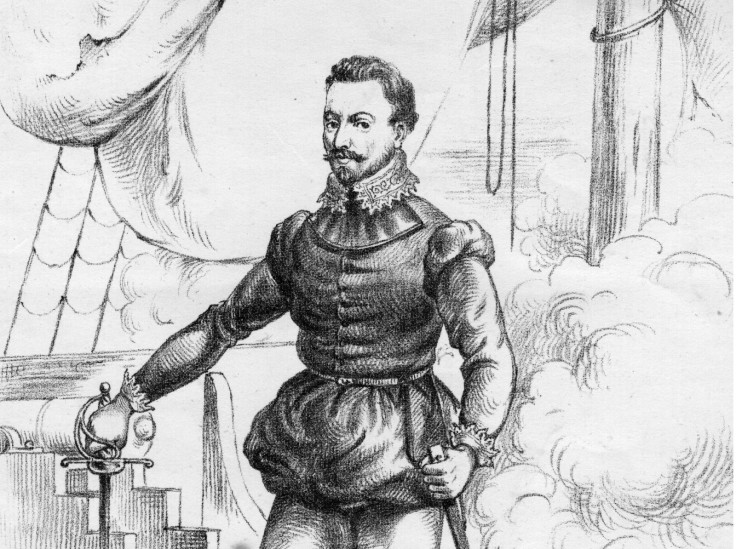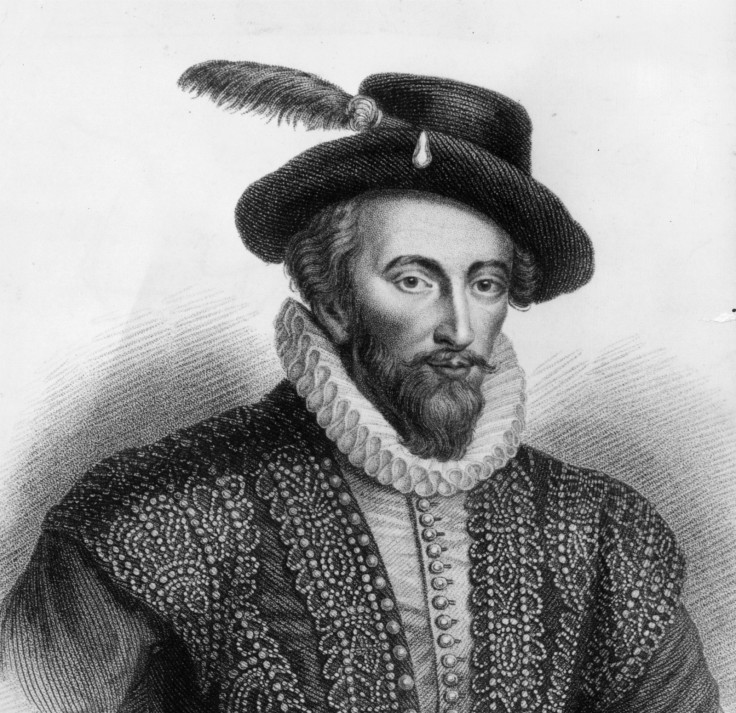Does David Cameron's nostalgia for Elizabethan endeavour include colonisation and slavery?

We have an unhealthy habit for nostalgia in Britain. Rosy-eyed remembrance of British history – the Empire, Blitz spirit, caning children, public executions and all the rest in between – is like crack to us. And Conservative prime minister David Cameron has, analogously speaking, been hitting the crack pipe hard.
"I think of the Age of Discovery, when our great explorers took to the waves to open up trade routes," Cameron wrote in a Daily Mail article published today (24 July 2015) intended as a rallying cry to exporters to look beyond Europe's burning borders for business.
"No territory was too far. No opportunity was left untapped. We need to employ some of that Elizabethan endeavour today – to tell the world: 'we've got the supply; you've got the demand; let's do business'."
Methinks Cameron has got it the wrong way round. The old English explorers of the Elizabethan era – bearded salty sea dogs such as Sir Walter Raleigh and Sir Francis Drake – were the ones with the demand: 'Give us everything you've got'.
It was the dawn of the Age of Empire, when England and her European neighbours went marauding around the globe, pillaging far-flung, newly discovered lands and colonising every tribe, town and civilisation they came across.
In other words, leaving no opportunity untapped and opening up trade routes.
Elizabeth I gave Raleigh explicit permission to plunder all the unfortunate non-Christian lands he happened to float upon in his galleon. Or, as she described them in her 1584 charter to Raleigh before he set sail, "remote, heathen and barbarous lands, countries, and territories".
Take what you want, was her instruction, and bring as much back as you can. He ended up bringing back spuds and baccy (cheers, Walt) as well as colonising what he called Virginia in the Americas, named after the virgin queen (sure...), with all the violence against natives that such occurrences entailed.

Raleigh was also known to raid the odd Spanish treasure ship. And he went off in search of South American gold, in particular the mythical kingdom of El Dorado, where the Spanish and Portuguese had already slaughtered their way to a fortune (before failing to grasp the basic tenet of supply and demand, and crashing their economies by transporting most of it home).
But worse than Raleigh was his contemporary Drake, a glorified pirate who loved nothing more than a seafaring life of robbery and violence. He was the Tony Soprano of the ocean.
A skilled and ruthless sailor, he navigated his way around the Caribbean and West Indies raiding foreign settlements and treasure ships trying to return to their homeland with the spoils of South American colonisation.
Drake was also involved in the early slave trade, attacking African coastal settlements with his slaver cousin Sir John Hawkins. He and his crew abducted and enslaved Africans before selling them to Spanish settlers in the Americas.
Cameron may want to choose his historical reference points more carefully in future. Or, if it was intended as a veiled threat to hesitant foreign governments, why not go in harder?
"What Britain today needs is a dose of Crusader conviction. Submit your holy cities to us, you heretics, or we will besiege them and massacre all of your menfolk. And please open up your trade routes," he could say.
Then again, harking back to ages of violent theft, slavery and colonisation -- understandably a touchy subject in Britain's former colonies, the very same places that we now wish to do more business with -- probably isn't a great opening gambit to foreign investors.
© Copyright IBTimes 2025. All rights reserved.






















